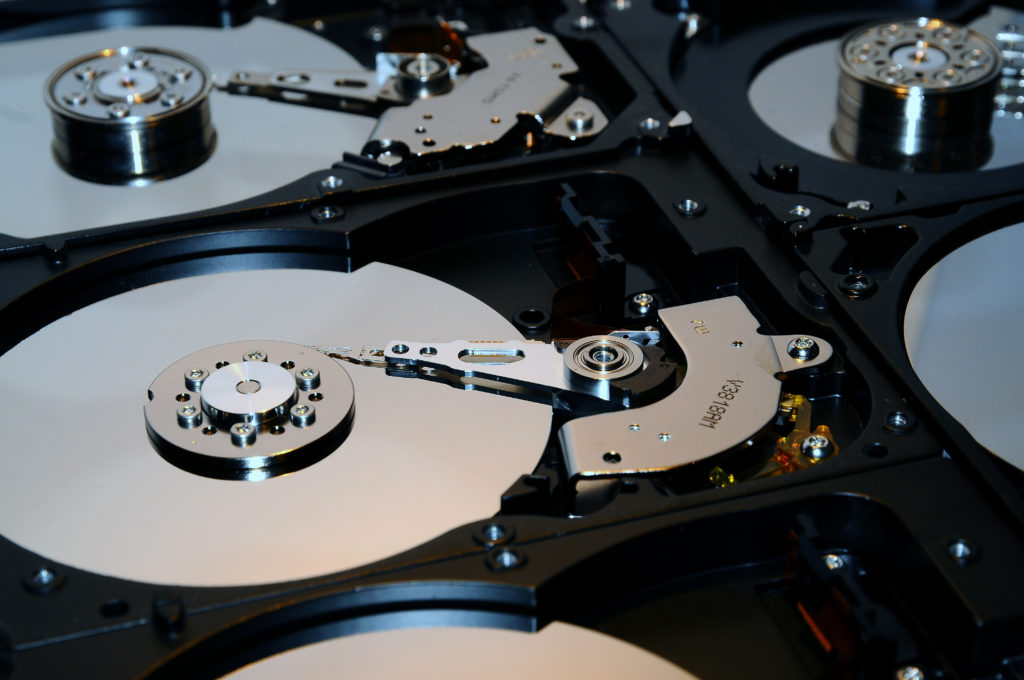30/09/2020
read
How to Back Up Your Hard Drive

When you lost valuable data, occasionally, its irreversible, meaning, if it’s not backed up on a hard drive, it’ll be lost forever. We are all familiar with the frustrating feeling of losing important files. Backing up your hard drive is an important and fundamental process, for businesses of any size. An essential part of your cyber security, CIS take a closer look at how to back up your hard drive below.
Why Back Ups Are Essential
Regular backups can ensure:
- Continued business –should you suffer from data loss, a cyberattack or a natural disaster your back up enables you to still continue trading.
- Ransomware attacks – cybercriminals infecting your network with ransomware can encrypt your data and demand money in order to retrieve it. With a backup, it is possible to retrieve your data safely with no financial loss.
According to a study carried out by Dynamic Technologies more than 75% of small businesses don’t have a disaster recovery plan, meaning should they fall victim to ransomware or data loss they may have to start again from scratch – essentially threatening the liability of their business.
For more information about our IT support and back up and disaster recovery solutions, contact our team or explore our site for more.
How Does Data Backup Work?
There are various methods of data backup (see below), but the most common is to use a cloud-based system.
Cloud computing refers to a series of remote servers which are accessed via the internet. This means that, regardless of what happens to the hardware within your organisation, your data is safe and accessible anywhere with an internet connection.
Cloud back up for business essentially makes a copy of your data on an independent storage system that may be owned by your own organisation or provided by a third party.
Cloud data services can also be accessed by public or private internet. The public cloud refers to services such as Google Drive, Microsoft Azure or Dropbox, whereas private cloud services are delivered by a private internal network and are therefore more secure. Cloud services offer you the level of security and control your business needs.
However, the key to successful data backup is repetition – the backup is only a snapshot of your data at a particular point, so the more often you do it, the more up-to-date the backup will be, and the less data will potentially be lost.
For more information on cloud-based back up services contact the team at CIS today.
What Should You Back Up?
The simple answer to what should you back up is, any data that is difficult to replace or data you wouldn’t want to lose.
This can include:
- Word processing documents
- Spreadsheets
- Databases
- Client details
- Emails
- Photographs, video and music files
It is generally unnecessary to back up system files or programmes as they can always be reinstalled with little inconvenience.
The danger of not backing up your files is more than just losing months of work. While it is sometimes possible to retrieve data from a corrupted hard drive the process is expensive and not always 100% effective.
How to Back Up Your Files
Backing up files at home needn’t be expensive or complicated.
Here are six ways to back up and protect yourself from losing important data.
- USB stick or external hard drive – You can save files on a USB stick or external hard drive which is easy and relatively cheap. However, USBs are easily mislaid due to their size, and external hard drives need to be looked after as they are susceptible to damage or malware.
- Networked Attached Storage – Most businesses (of any size) often back up their data to a network-attached storage solution, which is also becoming more common in home environments. This is a cloud solution and therefore saves your data separately from your hardware.
- Cloud Storage – Using Dropbox, Google Drive or other cloud-based storage systems is easy and accessible anywhere there is an internet connection. However, you are reliant on the third-party company paying close attention to their own security systems unless you use the private cloud.
- Hard copies – For some of those most vital documents a hard copy, locked in a fire-proof box will survive any network outages and they can’t be accessed by cybercriminals.
- System Backup – Windows 10 has a Backup and Restore feature which creates a digital image of your system which can be retrieved should you require backup disaster recovery.
- Microsoft 365 backup – Many people using Microsoft 365 assume the office 365 backup is automatic. And to a certain degree, it is. However, Microsoft are unable to retrieve data deleted by human error, malicious ex-employees or ransomware attacks and therefore would be irretrievably lost. A third-party backup tool would enable deleted files to be retrieved.
For any of these methods to be effective, they need to be carried out regularly. Daily, weekly or monthly backups are advised depending on the level of output, number of users and the sensitivity of the data. As with most security measures you can’t back up too often.
It is suggested that effective backup solutions include three backups of your files in two different formats with at least one off-site or in the cloud.
If you don’t remember when you last did a backup and would like some advice on automating it or putting disaster recovery services in place which are right for your business speak with the team at CIS today.
How can we help?
Whether you have a project to discuss or just need some friendly advice, we'd be happy to help.
Get in touchKeep up to date
Join our mailing list and stay up to date with all the latest in the IT world